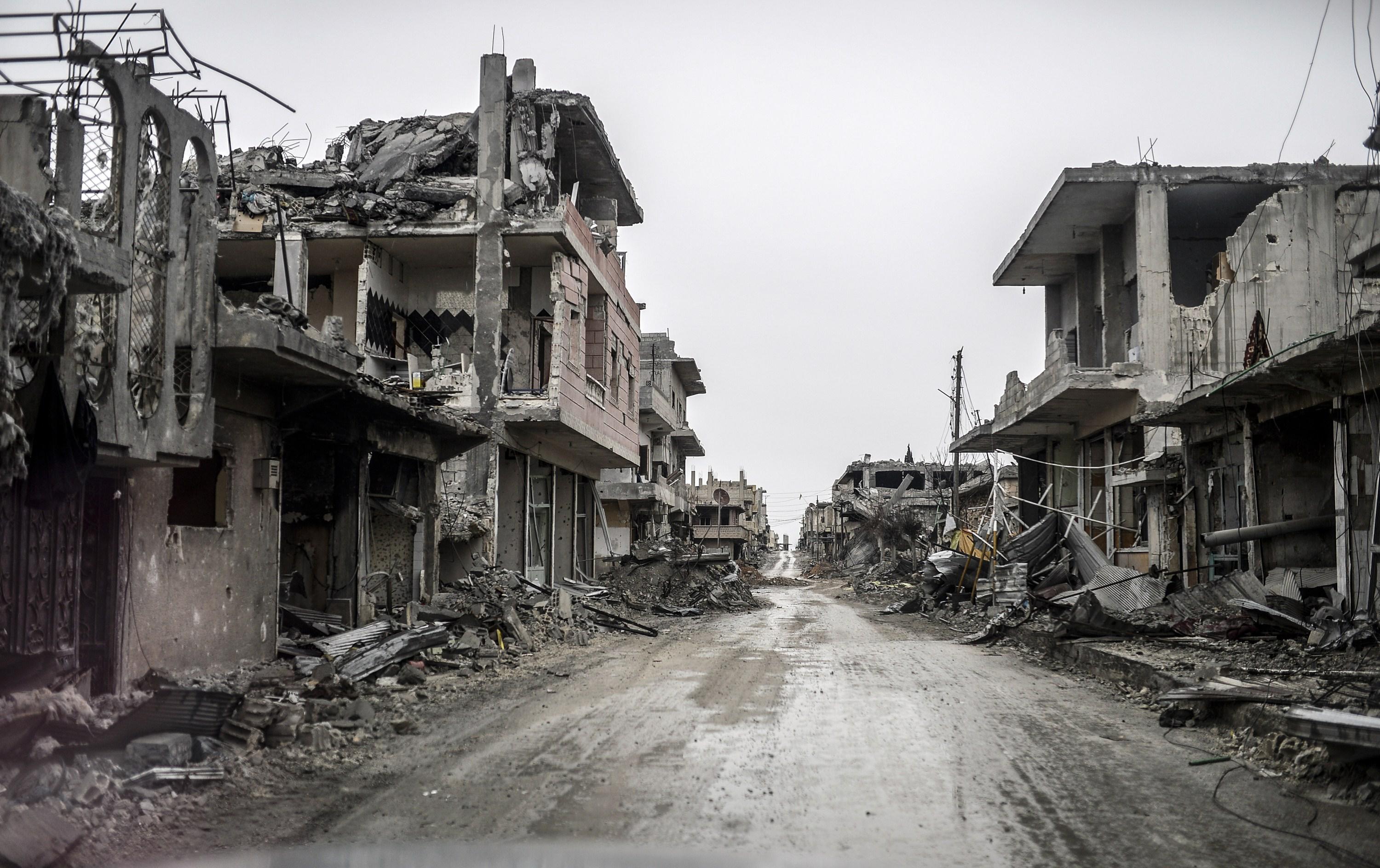Today brought news of two major new U.S.-led initiatives in the war against ISIS. The U.S. Central Command announced that an assault by combined Iraqi and Kurdish forces to recapture the Iraqi city of Mosul, conquered by ISIS last summer, is set to begin some time this spring. Separately, the U.S. and Turkey announced a new agreement to train and arm vetted Syrian rebels to fight against the Islamic State.
I’m not feeling particularly bullish about either development. U.S. commanders took the unusual step of briefing the media about a military operation before it happens, because, in their words, they want to demonstrate the Iraqis’ “level of commitment,” which is the sort of thing you normally hope can be taken for granted when it comes to a country’s efforts to regain control of its own territory. But nothing can be taken for granted, given that Iraqi forces collapsed in the face of the ISIS assault last summer.
As for the Syrian rebels, the movement remains riven by internal disputes. How America’s single-minded focus on ISIS can be reconciled with the goals of its Syrian proxies, whose first priority is the overthrow of Syrian president Bashar al-Assad, I’m not sure. In the best-case scenario, it will be months before U.S.-backed Syrian rebel groups pose a real threat to the fast-growing terrorist state.
At this point, the best the uneasy coalition fighting ISIS can hope for is that the group weakens from within. And, despite the group’s rapid spread, self-destruction is a real possibility.
As political scientist Ora Szekely writes in a new analysis for Reuters, there are signs that the group’s economic model may no longer be sustainable. With no government patrons, ISIS has to raise money itself. It’s done this by selling oil, ransoming hostages, and looting and extorting the people who live in its territory. Oil revenues are believed to have dropped due to the U.S. bombing campaign. As for ransoms, ISIS may have already ransomed or killed off most of its high value prisoners. With Kayla Mueller’s death, ISIS is now believed to be holding only four foreign hostages, down from 23 last August.
ISIS could collect more taxes and property from locals, but that risks driving them to rebel as they did against the group’s predecessor in Anbar during the last U.S. war in Iraq. The caliphate is already facing a looming food shortage, as many farmers haven’t planted their wheat crops due to lack of access to equipment and fertilizer, which could deal a further blow to the group’s legitimacy as a government. Additionally, recent coalition gains in Iraq, though not significant in terms of area, threaten to cut off ISIS’s supply routes.
To sustain itself, ISIS has to keep conquering new territory to pillage. And, at least in Iraq, it doesn’t appear to be able to do this. The need to grow is of ideological as well as economic significance. As Graeme Wood recently wrote, “every month that it fails to expand, it resembles less the conquering state of the Prophet Muhammad than yet another Middle Eastern government failing to bring prosperity to its people.” New ISIS-affiliated groups are cropping up with startling regularity in other countries, but for the most part they don’t control territory and their links to the main leadership are often unclear. Unlike al-Qaida, a transnational underground network, it’s hard to see how the Islamic State would survive without a state.
Unfortunately, one resource ISIS still has in abundance is people. The number of foreign fighters traveling to Syria and Iraq to fight with the group is believed to have increased dramatically since last fall. But if ISIS’s leaders can’t hold their territory and maintain their momentum, there might not be much of a caliphate left for these new recruits to flock to.
